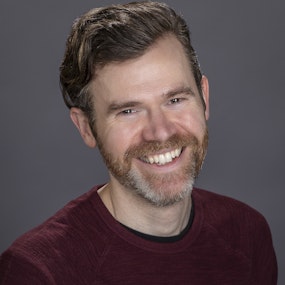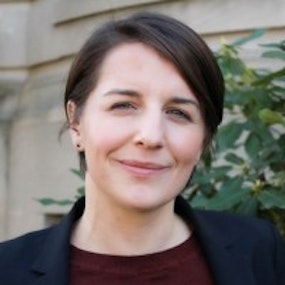JANSON SILVERS:
This is the award-winning Public Health Review Morning Edition for Monday, November 6, 2023. I'm Janson Silvers. Now, today's news from the Association of State and Territorial Health Officials.
KALEB ROEDEL:
It was alarming to see how much the rates have increased, and I think bringing attention to it is important.
SILVERS:
Broadcast journalist Kaleb Roedel at KUNR Public Radio in Reno, Nevada, reacting to a recent Pew survey that documents extremely high suicide rates among Native Americans and Alaska Natives.
ROEDEL:
Sadly, suicide rates have increased among all demographics, but just to see the levels they've risen for Alaska Natives and American Indians, it's devastating to see that the struggles just have continued throughout history for those communities.
SILVERS:
Roedel has interviewed experts who blame historical trauma and modern challenges, including a lack of funding.
ROEDEL:
There's obviously a lot of work to be done, but the fact that the Indian Health Service is training tribal members to respond to people in crisis because there's a shortage of mental health care professionals in these communities. It's good to see that there's attention to it and they're trying to address it.
JANSON SILVERS:
November is Native American Heritage Month, read more about the study and learn how disparities impact tribal communities by visiting the links in the show notes.
Agencies in Massachusetts are working together to help improve the health of people in the state. Stephanie Doyle is with the Department of Public Health.
STEPHANIE DOYLE:
I think the health of children and maternal health in Massachusetts and many other states are hitting its moment.
SILVERS:
And that means there's an opportunity to have a big impact. Madi Wachman is in the Massachusetts Medicaid office. She says children and families are the focus of the state's 1115 waiver.
MADI WACHMAN:
In this current waiver, one of our explicit goals was to amplify attention to the unique needs of children and families and this waiver provides substantial resources and incentives to transform pediatric practice, including expanding team care and with integrated mental and behavioral health, active inclusion of community health workers, and greater integration of families in their care.
SILVERS:
Wachman says the roadmap for behavioral health reform is another tool that fits well with the Medicaid waiver.
WACHMAN:
We consider the specific needs of youth and families throughout the design of the roadmap and we took a real inter-agency approach to addressing challenges faced by youth and families and accessing specialized services that meet their needs.
SILVERS:
Doyle credits collaboration between the two agencies for their success on these projects.
DOYLE:
I think what that allows us to do is a lot of learning together in the moment and so I think, over the last several years, we've really worked on integrated team-based care.
JANSON SILVERS:
Learn more about the work in Massachusetts using the link in the show notes.
Finally, this morning, stay connected with everything happening in public health when you sign up for ASTHO's Public Health Weekly email newsletter, join the list using the link in the show notes.
Before we go, we'd like to remind you to follow this newscast on your podcast player and ASTHO on social media. We're on LinkedIn, Twitter, and Facebook. That will do it for today.
We're back tomorrow morning with more ASTHO news and information. I'm Janson Silvers. You're listening to the award-winning Public Health Review Morning Edition. Have a great day.







